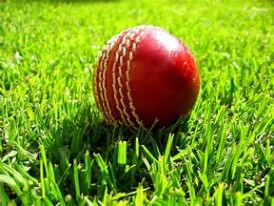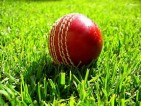A look back at Australia’s 1998 Test tour of Pakistan
Marco Trevisiol |
When Mark Taylor’s Australian side set off on a 3 match Test tour of Pakistan in late 1998, the odds of winning there seemed against them. Despite being the clear No. 1 Test team in the world, their failure in India earlier that year had exposed their long-held weaknesses in Asian conditions. Also, they were touring without their great leg-spinner Shane Warne (who’d had shoulder surgery) and with star paceman Glenn McGrath only just returning to international cricket after an extended absence.
And they were facing a highly talented Pakistan side who had embarrassed a West Indian lineup 12 months before 3-0 with two of those victories being by an innings. Pakistan had won their last home series against Australia in 1994 and on paper this appeared to be a weaker Australian lineup.
All signs pointed to a Pakistan series victory… but the reality was to prove vastly different.
The opening Test in Rawalpindi initially seemed like a lost opportunity for Australia as they reduced Pakistan to 8/147 with the most notable feature being that Warne’s replacement – Stuart MacGill – was giving Pakistan almost as many problems as Warne had. However, Pakistan fought back with a superb 120 run partnership for the 9th wicket with the excellent Pakistani opener Saeed Anwar putting in one of his finest knocks in scoring 145.
Pakistan managed to take their innings to 269 and when Australia slumped to 3/28 early on Day 2, it looked as if another failure in Asian conditions was on the cards for Australia.
But from this point on, Australia dominated the Test. Opener Michael Slater scored his first Test century since his 18 month omission from the side while Steve Waugh deepened his reputation as playing his best when the situations were the toughest with 157. With substantial contributions from Ian Healy & Darren Lehmann Australia recovered superbly to total 513.
Pivotal in Pakistan’s struggles was their leg-spinner Mushtaq Ahmed – who had enormous success against Australia in the away 1995/96 series. He was only able to manage 2/115 off 41 overs and by the end of the series he was omitted.
Pakistan’s 2nd innings was a dismal affair as they meekly folded for 145. Their only achievement was managing to drag the game out into a 5th day (with 9 wickets down), much to the annoyance of Australia. But that annoyance quickly went away when the tourists won the first few overs of Day 5 by a massive innings and 99 runs.
Pakistan were understandably heavily criticised after their dismal opening Test, especially the awkward structure of their bowling attack and the lack of pace support for Wasim Akram. For the 2nd Test in Peshawar with Wasim Akram missing they brought in pace tyros Shoaib Akhtar & Mohammad Zahid. And bowling first initially they troubled the Australian top order but once they faded, Australia and in particular Mark Taylor prospered to record-breaking levels.
By stumps on Day 2 Taylor was undefeated on an astonishing 334, equaling the then record score by an Australian batsman.
Australia declared at 4/599 after two days but hopes of sealing the series were dashed as Pakistan’s batting lineup finally lifted their game, albeit helped by a very flat wicket. Anwar scored a century and the recalled Ijaz Ahmed continued his great record against Australia with another ton and it was obvious by stumps on Day 3 that the match would peter out to a draw.
The final Test in Karachi had high stakes as Australia had a chance for their first series win in Pakistan since 1959/60. Meanwhile, Pakistan were under major pressure to avoid a series defeat with their captain Aamir Sohail the focus of criticism for his lack of runs and some of his captaincy choices.
Australia batted first and after a strong start were only able to score a moderate 280. Michael Slater top-scored with 96 but yet again throwing his wicket away with a century in his sights – this time with a wild charge down the wicket before being stumped – would’ve been enormously frustrating. Surprisingly, the star for Pakistan was Shahid Afridi’s leg-spinners, especially as he’d been brought in the side as an opening batsman.
Pakistan had the potential to set up a win with a strong first-innings score but that was quickly ended by Glenn McGrath. In the first couple of Tests McGrath had been a solid contributor and unlucky at times but not quite reaching his customary peak. However he was back to his relentless best as he ripped through the top order to have Pakistan reeling at 6/116.
Pakistan did recover thanks to a fine century from captain Sohail but in a match they had to win, their batting tactics puzzled many. On the third morning their spinner tail-ender Shakeel Ahmed hung around for 36 deliveries scoring a solitary run, only ensuring time was lost in the game.
Pakistan only finished 28 runs behind on the 1st innings and needed quick wickets but in atypical style, Australia grounded them out of the game in the series by occupying the crease for 142 overs instead of their usual attack style. Leading the way was Mark Waugh – probably the most talented of the Australian bats in these conditions – who scored 117. It was a typical Mark Waugh series; frustratingly anonymous for the most part but when it counted he was able to deliver a decisive contribution with his batting skills few others possessed.
Pakistan had a day to chase down 419 but in truth they were just trying to save the match and after a wobbly start did so with aplomb with Ijaz Ahmed scoring yet another ton against Australia – his 5th in just 11 Tests against them. Few other batsmen would have as successful a record against Australia in this era.
Australia had taken a punt on veteran journeyman Colin Miller who after years of bowling fast-medium, had added off-spin to his repertoire with record-breaking success in the Sheffield Shield. Despite this it was a bold move to select him at 34 years old but his ability to open the bowling and bowl off-spin was to prove invaluable over the coming years and his 3 wicket opening spell on the final day briefly suggested Australia were heading towards victory.
But in a situation set up for him to deliver the tourists victory, Stuart MacGill couldn’t replicate the form from earlier in the series. MacGill wasn’t able to match the consistency or accuracy of his leg-spinning counterpart Warne but he showcased himself as a viable force in international cricket with many match-winning performances in Tests to come over the following decade.
While Australia were disappointed they were unable to push for victory, they could bask in the glory of a highly significant series victory. The significance of the victory was underlined when on the TV coverage late on the 5th day, the commentators spoke via phone to Richie Benaud, the only other Australian captain to lead Test winning side back in 1959. Of the numerous Test triumphs Australian cricket achieved in the 1990s, this was one of the most impressive.





Leave a comment